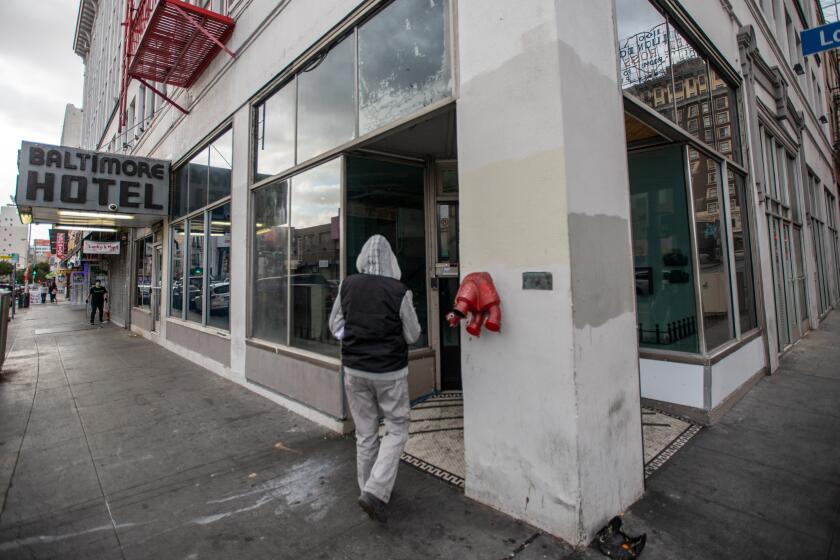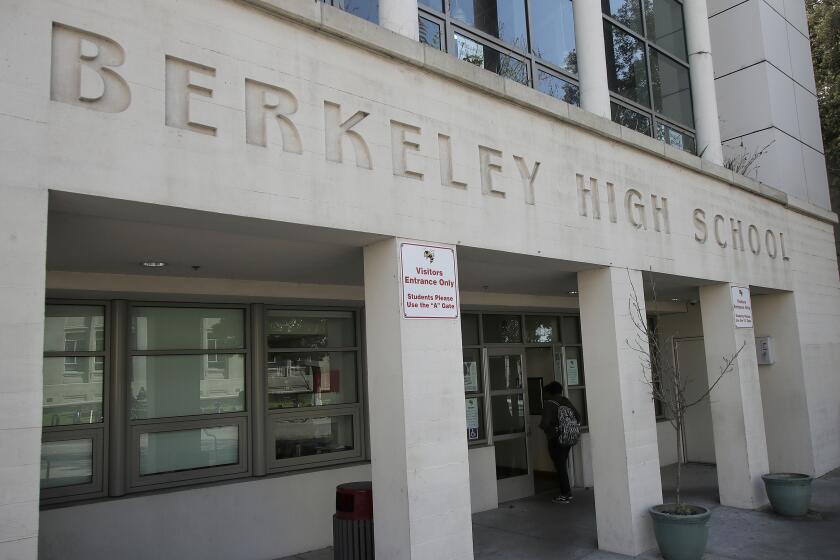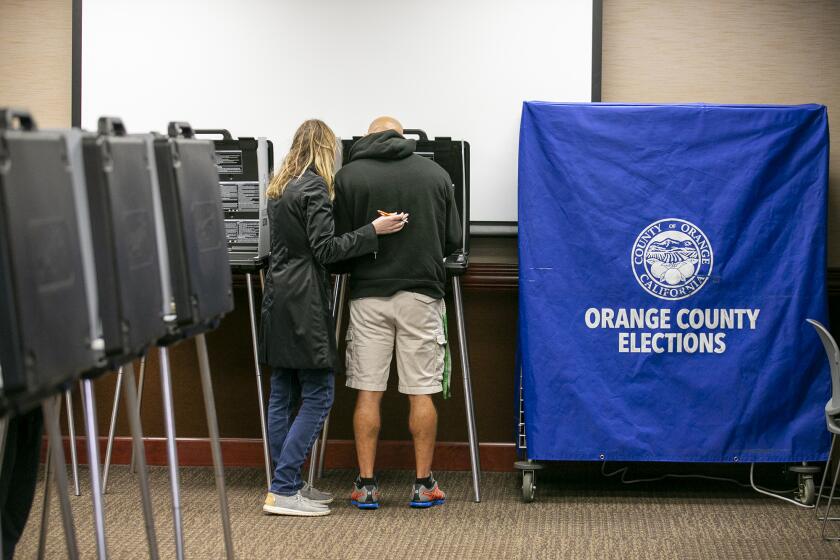Legislature Deals Blow to Rent Control
With Republican solidarity--and some help from Democrats--the Legislature on Monday struck down a contentious rent control feature in five California cities, including Santa Monica and West Hollywood, that prohibits landlords from raising the rent for new tenants.
Pushed by landlord interests for more than a decade, a bill (AB 1164) that includes so-called vacancy decontrol was approved in the state Senate and moments later in the Assembly. It would allow rental increases for incoming tenants in increments reaching market value over a period of three years.
The bill passed 24 to 11 in the Senate and 45 to 18 in the Assembly, winning Democratic support after some provisions were watered down from an earlier version.
Gov. Pete Wilson, who strongly opposes rent control, is expected to sign the bill.
Most cities in California with rent control provisions, including Los Angeles, do not intervene when a landlord sets the rental rate, usually upward, after one tenant leaves and another moves in. Controls apply only as long as the same tenant occupies a unit.
The five cities with the tougher ordinances keep rent controls in place from tenant to tenant, forcing rental income to remain steady or allowing only modest increases periodically.
State Sen. Jim Costa (D-Fresno), who led the Senate push to repeal such ordinances, said the legislation represented “an 11-year effort to try to end extreme forms of rent control in California.”
Saying the tight controls had led to a decrease in units available to low- and middle-income renters, Costa said the new rules, if enacted, would “create a positive business climate for the construction of rental housing throughout this state.”
But Democratic state Sen. Tom Hayden of Santa Monica cautioned that there could be an opposite result, saying strong rent controls preserve a healthy population mix of varying income groups in communities.
“For those of you who have long argued that Santa Monica is more or less a yuppie city because of rent controls, consider what will happen if you eliminate rent controls. Then it will be 100% affluent enclaves.”
Quentin Kopp (I-San Francisco), who voted against the measure, called the bill, authored by Assemblyman Phil Hawkins (R-Bellflower), “another example of this Legislature preempting local control, and I thought this was the era of local control.”
The bill would apply to most residential units in cities where rent hikes are prohibited despite a change in tenants. The cities are Santa Monica, West Hollywood, Berkeley, East Palo Alto and the Sonoma County town of Cotati.
Exempted from the provisions--meaning the relaxation of rent control would not be required--would be owners of mobile homes, mobile home parks and owners of rental properties that are subsidized by government funds.
Hawkins said the key to winning passage in both houses was the support of several Democrats, many of whom in turn were swayed by a switch in position by an influential public advocacy group, the Western Center on Law and Poverty.
Christine Minnehan, the lobbyist for the group, said it remained vehemently opposed to the major thrust of the bill but supported tenant protections contained in the Hawkins bill that were not present in an earlier Senate version. They were:
* Instead of taking effect next Jan. 1, the new timetable for landlords to raise rents on practically all forms of rental units will be phased in over three years. In legislation proposed earlier, the phase-in would have applied only to apartments and not, for example, to single-family homes and condos.
The graduated increases would be 15% of market value in the first year, 15% in the second year if a new tenant moves in, and permission to increase at will only after three years. That final increase would apply to existing tenants but not if they had moved in before this bill becomes law.
* A landlord would lose his right to raise rents between tenants if serious health, safety, fire or building code violations were discovered and not corrected for six months or more.
* The rules as applied under existing law would be clarified where sub-leases are concerned--a murky area now. The bill would prohibit raising rents as long as one party to a sublease remained living in the unit. As it is, landlords have tried to declare leases broken when a couple breaks up and a new partner moves in with the one remaining behind.
In Santa Monica and West Hollywood, landlords rejoiced while rent control advocates mourned.
“We’re ecstatic,” said Herb Balter, president of ACTION Apartment Assn., a Santa Monica landlord group. “After 16 years of being held hostage, we are finally free.”
Robert Sullivan, spokesman for the Greater Los Angeles Apartment Owners Assn., said the new law will change rent levels gradually in Santa Monica and West Hollywood.
“It will mean a slow rise to market [level] of rents in the community--a very slow rise over the next 10 years,” Sullivan said.
West Hollywood City Councilman Steve Martin agreed.
“This [the rent control bill] is certainly the end of an era,” Martin said. “But most people will not feel the effect for many years.”
Though landlords felt as though they were regaining control of their property, Santa Monica Rent Board Commissioner Lisa Monk Borrino said cities were losing control of local issues in a power grab by the state.
“I’m outraged,” Borrino said.
Moreover, Borrino said, the change in the law “puts a price on tenants’ heads. . . . Housing should be a right, not a privilege, and they’ve turned it into a privilege and not a right.”
Fellow Rent Board Commissioner Suzanne Abrescia said landlords may see the easing of regulations as the first step toward getting rid of rent control, but they are in for a fight.
“We are going to battle our hearts out to hold on to what we have,” Abrescia said.
Times staff writer Nancy Hill-Holtzman and correspondent Scott Collins contributed to this report.
More to Read
Get the L.A. Times Politics newsletter
Deeply reported insights into legislation, politics and policy from Sacramento, Washington and beyond. In your inbox three times per week.
You may occasionally receive promotional content from the Los Angeles Times.






